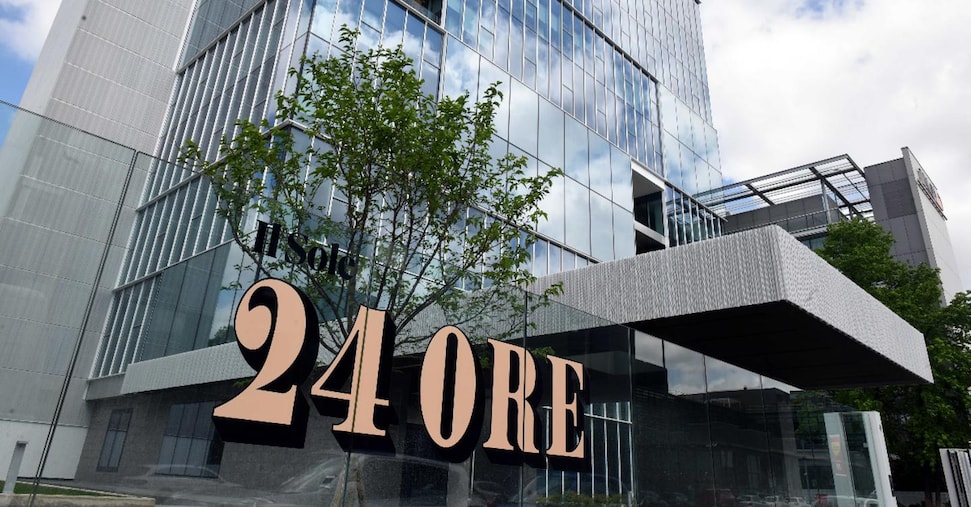Listen to the audio version of the article
After many years, the group’s balance sheet closes with a significant profit, at least by our standards. A positive signal to be welcomed and consolidated. However, a result obtained also thanks to the large-scale use of tools for reducing all costs is certainly not painless. So if the publishing area, at least apparently central to the group, has seen a contraction in direct costs of 3% (1.2 million), it is the cost of labor that has decreased even more sharply, both in percentage terms, almost 9%, both in absolute value (-3.7 million). This latter objective was achieved thanks to the application of all available shock absorbers to all employees and journalists in particular, from layoffs to early retirement. However, this is nothing new: in ten years the newspaper’s staff of journalists has decreased by almost 25%, going from 230 to 177, a considerable drop and with problematic consequences from a variety of points of view, from the difficulty in dealing with increased workloads with a lower number of editors, to the increasingly accentuated income disparities between colleagues, where the contractual framework is often different for the same tasks.
Furthermore, as regards income, reading the report on the remuneration policy, in the part relating to the remuneration paid, highlights the increase in the remuneration of both the managing director, the first row of managers, and the board of directors, compared to of a decrease of almost three thousand euros in the average salary of Sole 24 Ore employees. Nothing illegitimate obviously, for the achievement of the objectives to which the variable part of the remuneration was linked, but additional reflection on the opportunity to already pass to the fund for accounts largely supported by employee cuts would have been necessary.
But let’s get to the profile of the group, the one that emerges from an initial analysis of the accounts. A group that claims its multimedia primacy in economic, financial and regulatory information and therefore accepts in words the challenge for the preservation and relaunch of a precise identity, dedicated to an immaterial and crucial business such as information. And yet a group where in reality information matters less and less. Since the corporate presentation of the main summary data of the group in the 2023 financial year, the emphasis has been placed on the development of the products of the professional services and training area and on the good performance of the events area (8 million in revenues). With the editorial offices called upon to provide contributions to both one and the other without recognition of the value produced and rather with requests that are now increasingly unrelated to awareness of the role, of the figure of the journalist himself, in an increasingly ancillary position. An absence of consideration which, however, does not only affect the editorial team, but all the employees of the group, if it is true that, in a company survey, when asked about the rate of improvement of the company’s commitment to the issues of valorising people beyond ‘80% said they were dissatisfied.
The publishing area, still central to the accounting economy (103 million in revenues), suffers from a now historic absence of strategy, from a lack of investments, from a deficit of attention which is reflected in the results. Circulation reports a decrease both on the paper side, -6%, and on the digital side, -2 percent. In contradiction to every asserted digital first desire, the decrease in unique browsers on the site continues, -10 percent. For weeks, moreover, the attempt to introduce a more distinctly digital system for the production of content has clashed with the need to make it compatible with a newspaper that must be published every day. Application deficiencies whose severity is highlighted by the absence of a coherent organization of work and the structure of a typical working day which remains paper-oriented.
And the Trento economics festival, the group’s calling card, is the symbol of a reality that confines information to a marginal role, in a provincialism that we do not deserve. With dozens of journalists traveling for dozens of pages produced, largely to deal with self-referential requests, when, for example, on a structural level the editorial team has been without a correspondent from the United States for years (the correspondence offices are only two, with a third recently opened, in India, under conditions bordering on the tolerable). Of course, the organization of an economics festival by the country’s first economic newspaper makes a lot of sense, but the current implementation makes little sense. So the fear of a newspaper only being a showcase for every initiative unrelated to information (from marketing, to advertising, to training) is far from unfounded, but rather an everyday reality.
The editorial board of Il Sole 24 Ore
